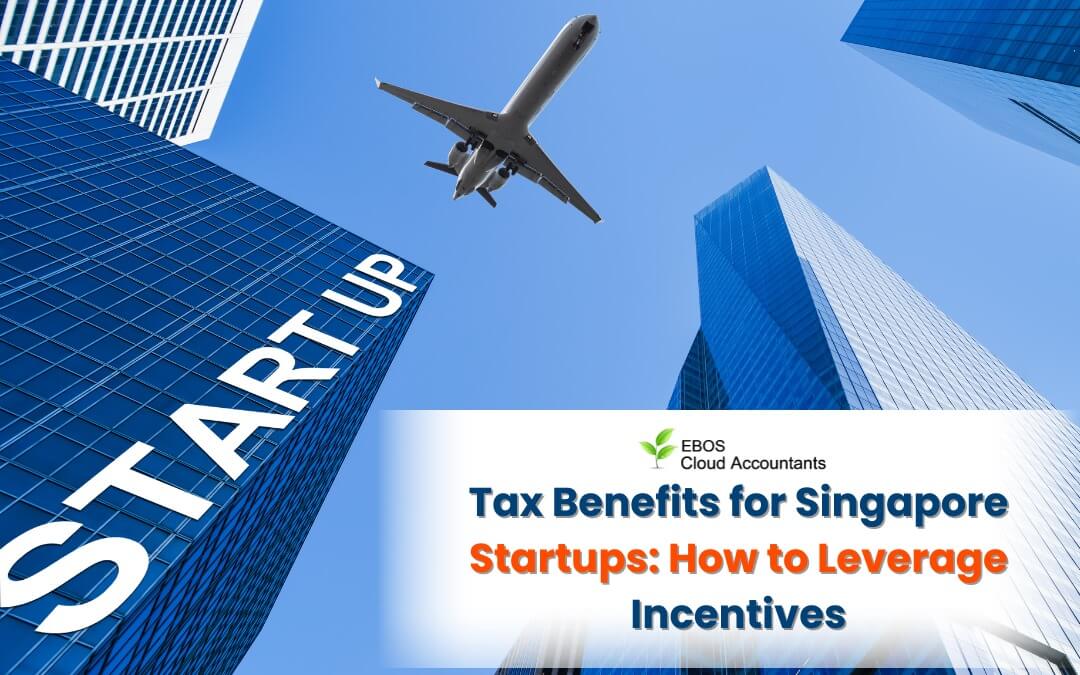Starting a business in Singapore provides numerous benefits, particularly in terms of taxation. The Singapore government provides a variety of tax breaks to promote entrepreneurs and foster innovation
Companies who establish themselves in Singapore are eligible for a number of fiscal and non-financial incentives. Applicants must meet stringent conditions, including committing to specific levels of investment, introducing cutting-edge skills and technology, and contributing to the expansion of research and development and innovation capabilities.
In this article we will discuss how startups can leverage tax incentives in Singapore.
A Closer Look at Singapore’s Tax Incentives
1. Utilize Corporate Income Tax Rebate– is a plan implemented by the Singapore government to assist businesses, particularly during moments of economic restructuring, as well as to provide some respite during less predictable economic cycles.
This rebate is applied to the tax payable after all deductions and exemptions, making it a direct form of assistance to enterprises in reducing their overall tax burden.
2. The Start-Up Tax Exemption (SUTE)– scheme is a Singapore government effort aiming to encourage entrepreneurship and the creation of new businesses. Qualifying new start-ups can benefit from this arrangement by receiving tax breaks on a portion of their initial assessable profits.
This exemption is normally granted for the first three years of assessment, delivering a major financial benefit to newly created enterprises. The idea is to reduce the first financial hurdles associated with launching a business while also encouraging economic innovation and entrepreneurship.
3. The Productivity and Innovation Credit (PIC) Scheme– was established to promote productivity and innovation in Singapore
Businesses can receive considerable tax breaks or cash dividends for investments in areas such as R&D, automation, staff training, the acquisition of intellectual property rights, and investment in approved design projects.
4. The Development and Expansion Incentive (DEI)– is designed to reward businesses to expand their capabilities, engage in high-value activities, and expand their operations both in and outside Singapore.
Companies that engage in qualifying activities can benefit from a much lower tax rate on the incremental income generated by these operations than the current corporation tax rate.
Adapting to Evolving Regulatory Frameworks
Singapore’s tax landscape is constantly evolving, with updates and revisions aimed at ensuring competitiveness and compliance with global norms.
To remain compliant and exploit available benefits, startups must stay up to date on legislative changes and adjust their tax strategy accordingly.
Regular meetings with tax experts and accounting companies can assist start-up in navigating regulatory difficulties and remaining compliant with developing tax laws.
Maximizing Benefits with Strategic Tax Planning
Effective tax planning is critical for startups to maximize tax benefits while reducing liabilities.
By proactively structuring business operations, minimizing deductions, and using existing incentives, start-ups can improve their bottom line and reinvest savings in growth efforts.
Collaborating with tax consultants and accounting firms can help start-ups get insights into proactive tax planning techniques tailored to their individual needs and goals.
Final Takeaways
Understanding Singapore’s tax benefits is critical for businesses trying to succeed in the dynamic and competitive Singaporean market.
Businesses, whether in the financial services, trading, services, manufacturing, or start-up sectors, can use these incentives to reduce tax burdens, stimulate innovation, and increase competitiveness.







